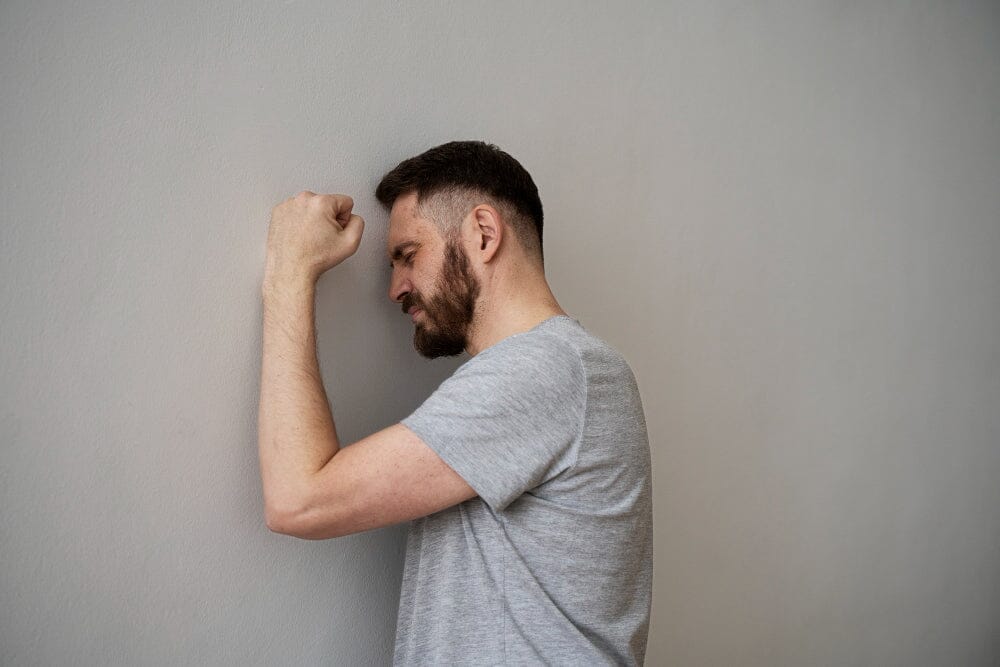DHT Hair Loss Check Comprehensive - Male in Chennai
Test Parameters


The DHT hair loss test for men provides comprehensive information on the core reasons for hair loss in men. Vitamin, mineral, thyroid, iron markers, and other critical measures are tested to understand the role of health parameters in hair loss. DHT, cortisol, and SHBG are also tested to understand their impact on hair fall and hair loss.
The male pattern hair loss test Chennai kit can also provide results within 3-4 days, making this a comprehensive quick turnaround examination. The DHT hair loss Chennai package also provides information on autoimmune and inflammatory markers which can be responsible for hair loss in men. The hair loss blood test Chennai kit has all the instructions necessary to perform the at-home assessment for maximum convenience and ease.
Our Hair Loss Check is well researched & comprehensive profile to help identify any underlying issues that could be causing hair loss.
What does hair thinning meaning?
Hair thinning refers to minor to moderate loss of hair, which can be a sign of excessive hair loss in the near term. The visible loss of volume and density of the hair can also be noticed in the case of hair thinning. While thinning of the hair doesn't cause baldness in men and women, it can give the appearance of thin hair spots on the scalp.
What is the meaning of DHT?
The chemical compound DHT (Dihydrotestosterone ) is a naturally-occurring by-product of testosterone, which is the male sex hormone. An enzyme within the hair follicle’s sebaceous (oil) glands helps convert the individual's testosterone to DHT. High levels of DHT in men can lead hair loss, the effects of which can be tested through a home test kit. There is also risk of secondary issues if the levels of DHT is lower.
What is the meaning of DHT hair loss cycle?
A human hair follicle undergoes several growth cycles that can range from between two and six years. There are 4 primary stages within the cycle, namely growth (anagen), transitional (catagen), resting (telogen) and shedding (exogen). When DHT is built up over time, within the hair follicles, it can lead to a disruption of the growth cycle. This direct disruption of the growth cycle can lead to hair loss, through a process called miniaturization.
The DHT shrinks hair follicles thereby shortening the growth stage and extending the resting phase within the scalp. With the progression of androgenetic alopecia, the DHT compound continues to negatively impact the quality of the hair follicles, which is why your hair becomes thinner. They can also emerge more fragile, lighter in colour, and disrupted across their course. The follicles will eventually diminish in performance and decrease the likelihood of natural hair production.

What are the major causes of hair fall and hair loss in men
There are several underlying causes that are associated with hair loss that can also detrimentally impact the development of new hair follicles. It is also important to test for these underlying conditions when undergoing the treatment of hair fall or a response to an increase in hair loss.
- Hormonal issues within the body, especially with abnormal androgen receptor or androgen level issues.
- Genetic predispositions by the way of either parent having male pattern hair baldness in their family history can play a role in hair loss.
- Certain medication for chronic illnesses can also have a side effect associated with hair loss. Blood thinning agents, cancer treatment drugs, and beta blockers can increase the risk of hair fall.
- Having a chronic condition can increase the risk of hair loss and hair fall. Conditions such as diabetes, prostate cancer, lupus, iron deficiency, thyroid disease, abnormal blood pressure, anaemia and certain eating disorders can lead to hair loss.
- Cosmetic reasons for the styling of hair can create critical effects on hair follicle quality and hair lifespan. Procedures such as perming, hair dying, bleaching, etc. can weaken hair leading to thinning over time.
What is the average hair loss in men?
According to the American Academy of Dermatologists, it’s normal to lose 50 to 100 strands of hair per day. Since there are 100,000 or more hair follicles on each persons scalp, the loss of 100 or so hair strands a day will not make a significant difference. In response to increasing hair loss it is best to get a DHT hair loss test done immediately as a primary step.
If you think that your hair loss is accelerating, then a complete hair fall test in Chennai is the right approach. You can get immediate insights on why you may be getting hair loss or hair fall and follow the best strategy according to the blood test report.
What are the male hair loss patterns commonly found?
Three of the most common types of male hair loss patterns are as follows.
- Temples: Hair will start thinning around the temples and at the top of the back of the head, also known as the crown or vertex.
- Receding hairline: Hair starts thinning and moving back around the front of the head on the sides.
-
Top of the head: One will notice hair thinning at the top of their head.

Hair loss can happen to anyone at any age, but hair loss affects both men and women differently. The most common type of hair loss in both men and women is a condition called androgenetic alopecia, also known as male or female pattern hair loss. Men with androgenetic alopecia can begin suffering hair loss in their early 20s, whereas women often don’t experience noticeable hair thinning until around 40 years old or later.
What are the best hair loss remedies for men?
These are the best ways to opt for when looking for how to control hair fall for men. While the reason of hair fall in male individuals is distinct for each person, these best practices can help reduce hair fall from roots.
-
Scalp massage - Regularly massaging the bald areas can result in hair growth. One of the main causes of hair loss in men is a lack of blood circulation in the head. Blood brings oxygen to the hair follicles, which is essential in stimulating and maintaining hair growth. Therefore, regular scalp massages help keep the blood circulation high and bring those important elements to the scalp.
-
Coconut Milk - Coconut milk is rich in nutrients and vitamins, which are essential for hair growth.
-
Egg Wash - Eggs rich in protein help keep hair thick and strong.
-
Antioxidant Foods - Certain fruits and vegetables are packed with antioxidants, which are the leading defense mechanisms of the body against free radicals. Some of the conditions that free radicals can cause include premature aging and the death of skin cells, including those of the scalp.
-
Biotin - Biotin is a vitamin that may increase hair growth. Foods that contain biotin include nuts and brown rice

We have around 100,000 hair follicles on our heads and losing between 100-120 hairs per day is a normal, natural part of the hairs' growth cycle.
For some people, the amount of hair they lose is much greater than normal and that's when it gets worrying.
There can be many different causes of hair loss including nutritional deficiency, hormone imbalance, DHT, genetics which can lead to male pattern baldness and autoimmune conditions such as alopecia areata.
Is my hair loss male pattern baldness?
If you have patchy hair loss in a random manner, you may have androgenetic alopecia. Alopecia is thought to have hereditary and autoimmune factors. It is not the same as male pattern baldness. Male pattern baldness is caused by hormones and its characteristic symptom includes hair loss beginning at the temple or crown of the head.
What can cause hair fall in male?
The main cause for male pattern baldness is genetics and the presence of androgenic hormones such as testosterone and dihydrotestosterone (DHT). The DHT and hair loss comprehensive test can help provide deep hair analysis and insights into existing DHT levels.
When does hair loss start in males?
A study in 1998 examining male pattern hair loss in men aged 18 - 49 found that 42% experienced moderate to extensive hair loss, and this got worse with age (16% for ages 18-29 to 53% for ages 40-49).
Generally, hair loss can occur at any age, owing to a variety of reasons. As men age, the role of DHT and testosterone changes, which can impact the risk of hair fall as more testosterone is converted.
While DHT and dietary reasons can be the cause behind a large number of cases, there are situations where other underlying conditions can introduce sudden hair loss as well. The effect of conditions such as diabetes, thyroid issues, problems with the prostate, etc. can also introduce hair loss in men.
Can hair loss in males be reversed?
Most cases of hair loss due to male pattern baldness are genetic and hence, cannot be reversed. However, here are a few things that may prevent hair loss -- Getting enough vitamins and minerals
- Using DHT-blocking shampoo that affects hair follicles
What is dht hormone?
A significant number of cases of hair loss is due to genetic male pattern hair loss, with DHT and testosterone conversion in men. It may not be reversible, owing to the genetic component involved. However, in the case of other underlying causes hair loss can be minimized.
- Improving macro and micronutrient food profile, ensuring ample vitamins and nutrients in diet.
- Reducing stress and ensuring adequate deep sleep regularly.
- Using DHT blocking shampoo that can affect hair follicles directly.
What is the DHT hormone?
Dihydrotestosterone (DHT) is a sex hormone present in males that is a metabolite of testosterone. The androgen hormone is three to six times more powerful than testosterone, which is why it is important to monitor DHT levels when experiencing hair loss. The enzyme 5 alpha reductase (5α reductase) converts testosterone to DHT and around 10% of testosterone is converted through this process. This can cause hair fall in men, which is when a DHT and hair loss test is necessary for hair analysis.
How much DHT causes hair loss?
The optimal range of DHT in men is 14 - 77 ng/dL. A higher concentration can shrink hair follicles and lead to hair thinning and DHT hair loss
Where can I buy a DHT hair loss Chennai test?
You can check your DHT levels and the effects of DHT in the hair through MyDiagnostics. You can get a highly cost-effective hair loss test with the DHT hair fall Chennai test price of INR 5500. This ensures that you are getting thorough results for all parameters that can be impacting your hair health. You can get multiple tests done in a cost-effective manner, with at-home convenience for complete testing in Chennai.
- Male pattern baldness is a condition that causes hair loss and hair thinning in males.
- The main cause is genetics and the presence of androgenic hormones such as testosterone and dihydrotestosterone (DHT).
- The home based blood test is used to diagnose this condition in males.
- This at home blood test is for males experiencing pattern hair fall and hair thinning.
- Males sensitive to DHT
- Fasting for 10-12 hours is essential
- Do not consume alcohol 24-48 hours before the test
- Do not engage in heavy exercise/workout 24 hours before the test





